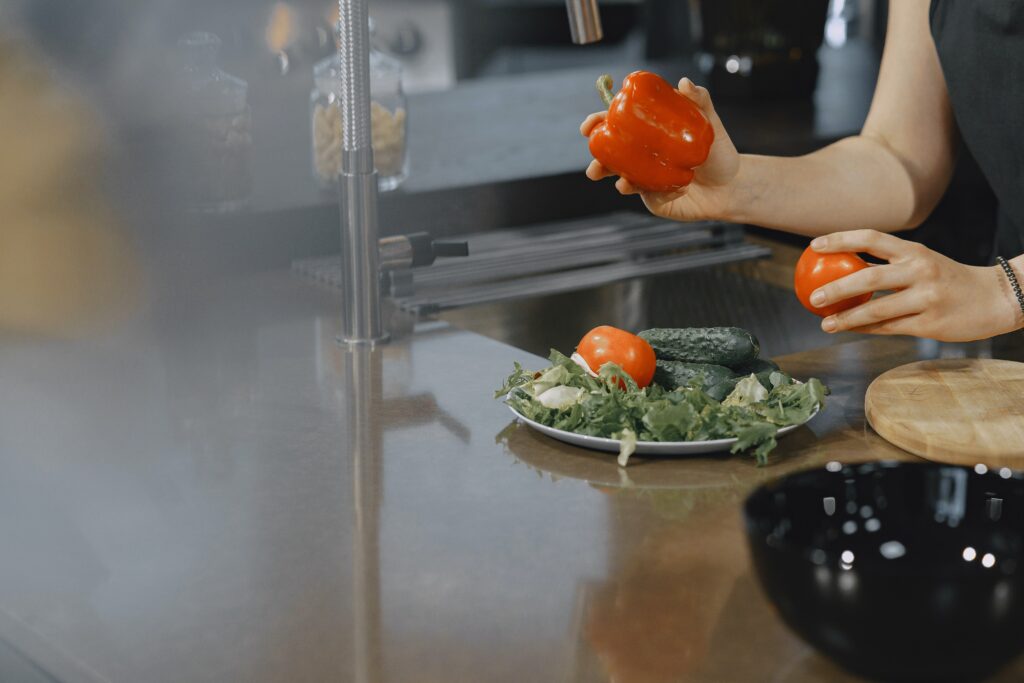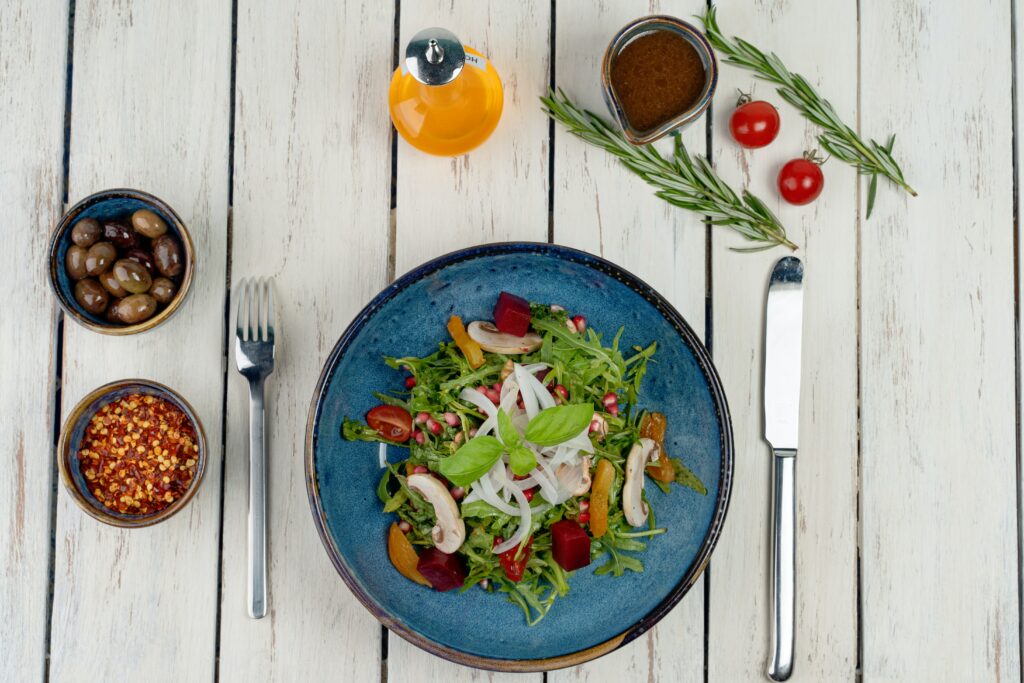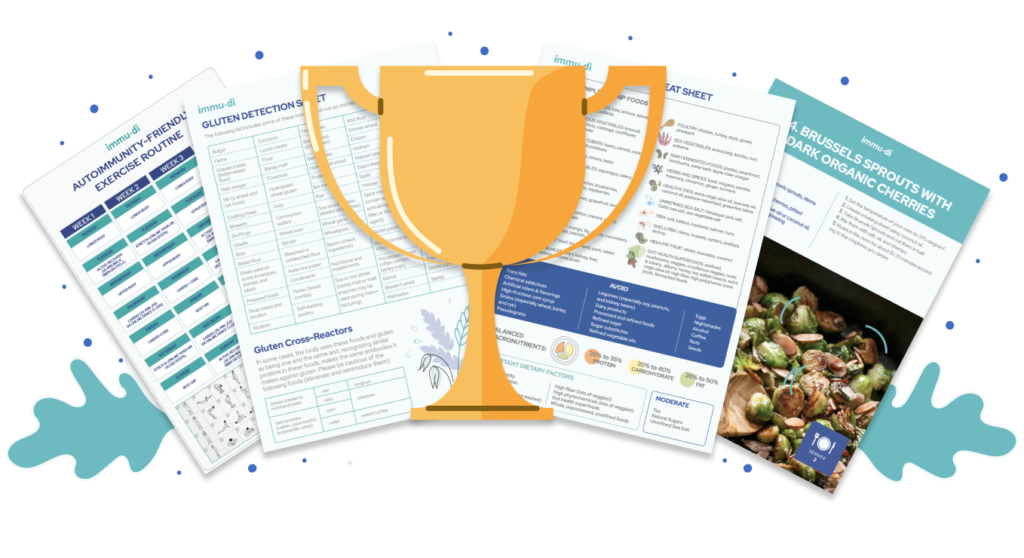Navigating Health In Your 50s: Losing Weight the Sustainable Way
67011 views
When you hit your fifties, it’s not unusual to be carrying a little more weight than you’d like. Perhaps you’ve been too busy to focus on your health, or you’ve let yourself go a bit after having children. Good news: fitness and health are still well within your reach!
And yes, you can trust me – because I’ve been there myself.
For me personally, my early 50s were a source of discomfort and insecurity. I weighed more than I wanted to. I was winded by brief exercise. There were so many reasons for me to change things – like wanting to keep up with my grandkids – but still, I hesitated and I procrastinated.
The reason I want to talk about this, and to share my story, is because too many people feel hopeless after hitting the 50+ milestone. Nothing fits properly anymore, fad diets do nothing to help you lose weight sustainably, and it feels like your best years are behind you.
But I promise – they’re not! You can make small changes to your lifestyle that will lead to sustainable weight loss, an improved sense of wellbeing, and better health overall. Here’s how I did it.
I Stopped ‘Dieting’
It sounds counter-intuitive, right? I know. But hear me out.
I had been yo-yo dieting my whole life. I would lose a few pounds, feel good about myself for a while, and then eventually fall off the wagon and put all the weight back on (plus some extra, of course).
It was an exhausting and demoralizing cycle that left me feeling worse about myself than ever.
Believe it or not, dieting is more often a negative than a positive experience. In fact, studies have shown that dieting actually makes people more likely to gain weight in the long run. An endless list of other maladies can come from yo-yo dieting, like bone density loss, low energy levels, and irregular periods.
By dieting, I’m mostly referring to fad diets like:
- Atkins and Keto
- The Master Cleanse
- Carnivore diet
- Paleo
- Weight Watchers
- Whole30
I’m not saying there’s never a time or place for diets. Some people go vegan for ethical reasons and find that it also helps them lose weight. Others practice a low FODMAP diet to target their IBS symptoms. The diets you want to look out for, though, are the ones that encourage restriction or drastic changes for suspiciously quick results.
These diets aren’t built to last and often do more harm than good in the long term. So instead of starting another fad diet that I would only give up on a few weeks later, I decided to focus on making small changes to my lifestyle that I could stick with for the long haul.

I Let Myself Eat
Seriously, you have got to let yourself eat. Restriction and starvation are not your friends; they are your enemies.
You cannot lose weight and keep it off if you’re constantly depriving yourself of food. It’s just not sustainable, and your body will fight back.
I’m not saying you should eat whatever you want, all the time. But you shouldn’t be afraid to enjoy a piece of cake or a bowl of pasta every once in a while. Balance is key, both in terms of the types of foods you’re eating and the amount.
See, the lesson I had to learn during my first year of self-improvement was that weight loss is not an all-or-nothing game. You can (and should) still have treats occasionally, as long as you’re mostly eating healthy, whole foods the majority of the time.
In other words: it’s about what you eat, not how often you eat it. There are certainly issues with overeating, and weight loss can’t occur without a caloric deficit – but starvation and restriction will almost always end in bingeing.
I Didn’t Accept My Weight
When the stubborn pounds just wouldn’t budge, I would get so frustrated. I would beat myself up, thinking that if only I had more willpower/wasn’t so lazy/didn’t have such a sweet tooth, etc., then I could finally lose the weight.
After that? I would succumb to the common excuse. “Weight gain is totally normal for people my age. There’s nothing I can do about it.”
Wrong. There is something you can do about it. You just have to be willing to put in the work – and see results as a process, not an overnight transformation.
The thing is, sustainable weight loss doesn’t happen quickly. It’s a slow and steady process that requires time and patience. And if you’re not seeing results as quickly as you’d like, that doesn’t mean you should give up altogether.

I Followed A Plan That Worked For Me
The neighbor I mentioned earlier looked absolutely incredible – and I just had to ask her what the secret was. She told me that she had been using something called Immudi.
(No, it’s not some weird voodoo diet!)
It’s pretty simple: Immudi quizzed my neighbor about her goals and habits, then curated a lifestyle plan specifically made for her, including a personalized workout routine and meal plan.
I decided to give it a try, and I was really impressed with how much thought had gone into my individualized recommendations. Plus, it was easy to stick to because it didn’t feel like I was depriving myself – which is always a bonus.
My Results on Immudi
You’ll never believe this, but I felt a huge difference within just one week. My energy had never been so stable. The cravings that usually haunted me all day long had dissipated. I was even sleeping better!
But the best part? The weight started to come off, too – and I gradually began to fit into my clothes better.
Now at 53 years old, I’ve been using my Immudi plan consistently for months; it makes me emotional to think that something so simple has completely changed my relationship with food, my body, and my outlook on life.
If you’re struggling to lose weight, I urge you to find a plan that works for you – one that is sustainable and won’t leave you feeling deprived. Trust me, it’s worth the effort! And with Immudi’s limited-time offer of a free quiz, you’ve got nothing to lose.

Answer a quick quiz and discover which weight-loss approach suits you best!